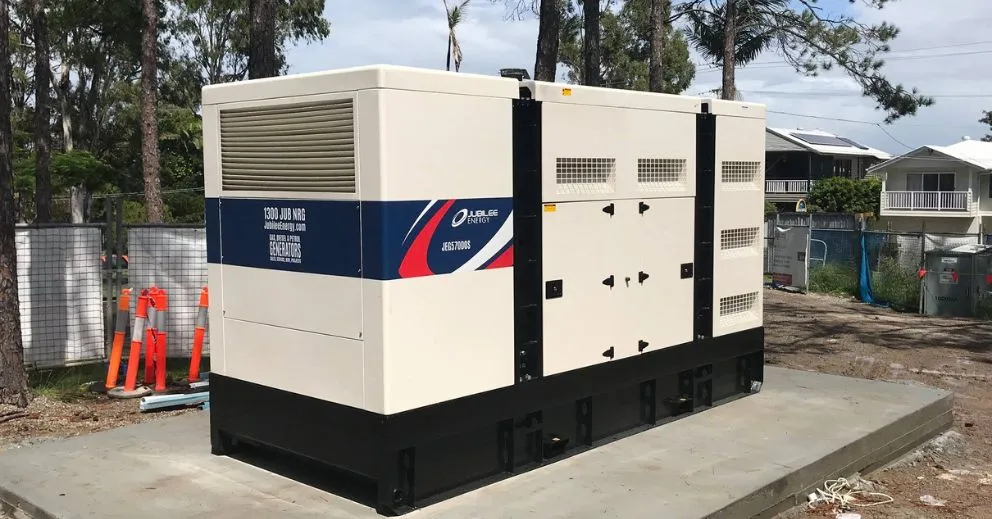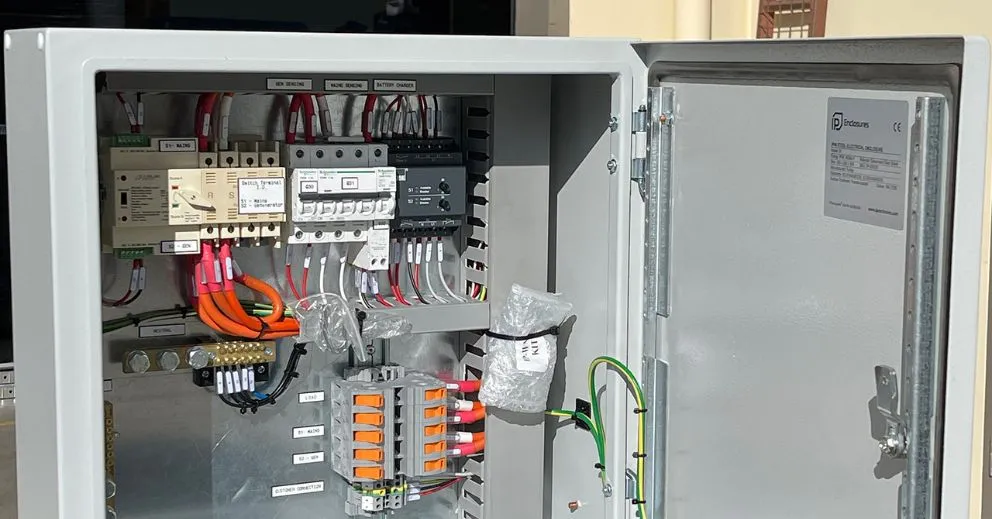Unexpected power outages can bring business operations to a grinding halt. Whether it's due to severe weather, grid failures, or scheduled maintenance, the cost of downtime adds up quickly.
That’s why having a backup generator plan for your business is more than just a precaution, it's a necessity.
Summary: Power interruptions can happen at any time, but with a backup generator plan in place, your business can stay operational, reduce downtime, and protect critical equipment and data. This blog outlines the key reasons every business, big or small, should have a generator plan, what it should include, and how to ensure it's ready when you need it most.
1. Power Outages Are More Common Than You Think
High demand on the grid, bushfires, and scheduled maintenance can all lead to unexpected power disruptions. Without a backup generator plan, your business is vulnerable to serious risks, including lost revenue during downtime, interrupted communication systems, potential damage to equipment or data, and safety concerns for staff or customers.
A well-prepared backup generator setup ensures your operations continue smoothly and you're never left in the dark when the power goes out.
2. Protect Your Revenue and Operations
Even a short blackout can cause significant losses, especially for businesses reliant on:
- Computers, POS systems, and servers
- Refrigeration or climate-controlled storage
- Security systems
- Machinery or production equipment
A generator allows you to continue operations with minimal disruption. Think of it as an insurance policy for your business continuity.
3. Safeguard Your Data and Technology
IT systems are especially vulnerable during sudden power outages. A loss of electricity can lead to corrupted files, damaged servers, and interrupted backup processes.
By including your IT infrastructure in your generator backup plan, you can protect sensitive business data and minimise the risk of costly technical recovery efforts later on.
4. Maintain Customer Trust and Service Standards
A power outage doesn't just affect your bottom line, it affects your customers. If you're in retail, hospitality, healthcare, or any service-based business, being offline can damage your reputation.
With a generator plan in place, your business can continue delivering on promises even during blackouts.
5. Reduce Safety Risks
In many workplaces, loss of power can pose serious safety hazards:
- Emergency lighting and exit signs may fail
- Equipment may shut down mid-task
- Refrigerated goods may spoil
Having a generator plan ensures critical systems, like lighting, refrigeration, alarms, and essential machinery, remain operational and safe.
6. What a Good Backup Generator Plan Should Include
A proper backup plan isn't just owning a generator. It includes:
- Power requirements assessment – Identify what systems must stay online.
- Proper generator sizing – Ensure your generator can handle your load.
- Professional installation – Ensure safety, compliance, and performance.
- Regular maintenance schedule – Avoid failures when you need it most.
- Automatic Transfer Switch (ATS) – For seamless switchover when power cuts.
7. Every Industry Can Benefit
From cafes to clinics, warehouses to data centres, every business relies on power. Whether you're a small operation or a large facility, a tailored generator plan keeps your operations stable and your team confident in any outage.
Need Help Creating Your Generator Plan? Call Jubilee Energy
Don’t wait for a blackout to realise your business isn’t prepared. At Jubilee Energy, we help businesses of all sizes assess their power needs, choose the right generator, and implement a complete backup power solution.
Contact our team today to build a reliable, cost-effective backup generator plan that keeps your business running, no matter what.
Reach out now and secure your power and peace of mind.
Key Takeaways
- A backup generator plan is critical to avoid lost revenue, protect assets, and keep customers happy during power outages.
- Planning ahead ensures your generator is sized correctly, installed safely, and maintained to work when needed.
- Every business, regardless of size or industry, can benefit from backup power security.
FAQ:
Do I need a large generator for my business?
Not necessarily. It depends on the systems you need to keep running during an outage. A professional assessment can help you choose the right size.
How often should I service my backup generator?
At least once a year, or after every 100–150 hours of use. More frequent servicing may be needed for high-demand businesses.
Can I install a generator myself?
It’s strongly recommended to have a licensed professional handle the installation to ensure safety and compliance with Australian standards.
Will my business insurance cover power outage losses?
Some policies offer business interruption coverage, but it’s best to check your policy. Either way, a generator helps you avoid relying on insurance in the first place.
More insights from us
Discover the latest in power generation technology.





